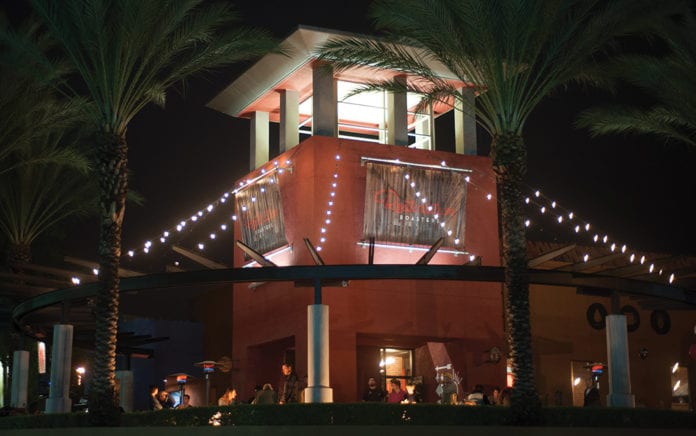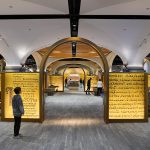The Corona, California, coffee shop is staffed by volunteers and residents of the Corona-Norco Rescue Mission.
One thing I have learned over my two decades of working with ministries around the world is that shift happens. For example, I have seen radical changes in church growth and discipleship strategies over the years. To explain the way the cultural paradigms and values have shifted over time, let me share the Parable of the Bean.
Once upon a time, raw, unprocessed, unroasted coffee beans would be taken by the farmer to market to be sold for next to nothing. Following the Industrial Revolution, those beans were processed, roasted and packaged into globally recognized brands, like Folgers, and sold for a little more. Eventually, many industrial jobs in the United States shifted to developing nations or were automated, so the service economy offered lower-paying jobs but good, fast and cheap coffee like the kind you can get at McDonald’s.
With the rise of Starbucks and the experience economy, we think nothing of paying several dollars for raw material that is really worth less than a penny. We get a cup of coffeee and the opportunity to experience the sights, sounds, tastes and smells of a “third place” where they not only know your name, but your favorite order.
However, some economists say that in the third millennium we are entering a new evolution: the transformation economy. Today, if you give someone a chance to change themselves or the world, they will take you up on the offer. We have seen this principle apply not only to church design, but also to the design of many inspirational destinations we have been involved with in and outside of the local church.
Restoration Roasters
I can’t think of a better example of this phenomenon that creates a bridge between the church and a world so hungry for transformation than Restoration Roasters. Anyone who steps into this space gets a taste of what followers of Christ are doing seven days a week.
The creators behind this world-class, cause-oriented coffeehouse in Corona, California, see the transformation of lives as the most important component. Staffed by volunteers and residents of the Corona-Norco Rescue Mission, Restoration Roasters is helping to restore the lives of the city’s homeless population.
When my colleague Blake Ryan visited a coffee roasting facility, he was surprised to see how many people were involved in the business of creating specialty coffee. With every step, from the bean to the cup, coffee goes through an ongoing transformation to reveal ever-increasing value and flavor. With the Corona-Norco Mission in mind, he knew he was onto something.
Blake was inspired to open Restoration Roasters as a coffee shop with a purpose: to continually fund the mission, provide vocational training for the people they sought to help and bring exceptional coffee to the community in the process. Coffee would provide an unending opportunity to offer valuable skills that would result in lifelong transformation for the mission’s students.
A Story of Redemption
For PlainJoe, this coffee shop became a labor of love. Our team was asked to create the branding, design and build Restoration Roasters in a leased space that was, a former nursery on the campus of Crossroads Christian Church in Corona.
Every aspect of the enterprise, from the coffee roasting process, the reclaiming and redesigning of space, and the transformation of those who work and benefit from the coffee shop, needed to embody the project’s big idea: “I once was lost, but now I’m found.”
“God saw the beauty when he made each one of these people,” one of the rescue mission’s students told us. “Most of these people have lost the ability to see that beauty in themselves. People on the outside see them as worth less than other people. Through Restoration Roasters, we hope that beauty will be restored within themselves, and that other people will see it also.”
Throughout the construction process, we took special care to use reclaimed materials that would have typically been thrown out or devalued. Even the logo’s typeface was designed to convey a sense of nostalgia or bringing back the good with a modern, hopeful flair.
Today, rescue mission students receive training and are prepared to enter the workforce with skills in retail, coffee houses and customer service operations. From concept to branding and design to execution, every facet of Restoration Roasters represents the process of lovingly restoring the rescue mission’s students to productive, new lives as a valued part of the community.
Learn more about Spatial Storytelling by downloading a free copy of Sacred Storytellers: Design Intervention 2.0 by Mel McGowan at sacredstorytellers.com.
Article originally published in Outreach Magazine.
Mel McGowan is cofounder and chief creative principal of PlainJoe. He is a leading master planner and designer of churches in America.



